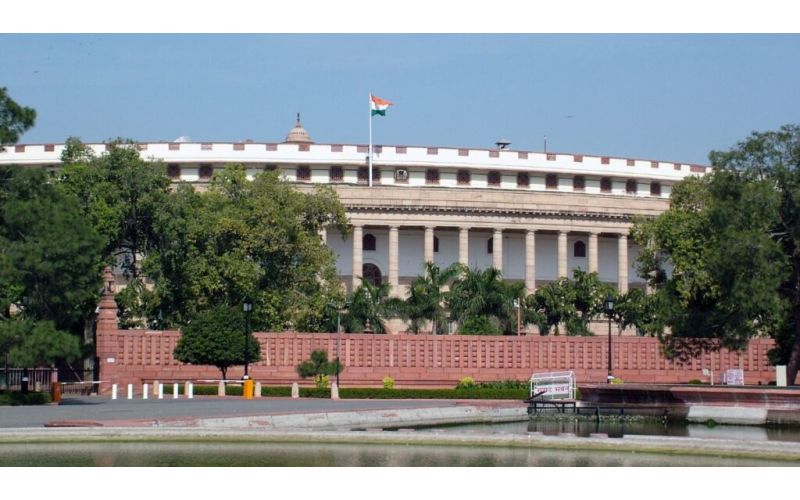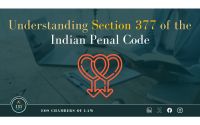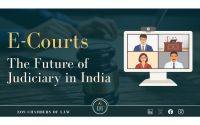Cheque Bounce Case Can Be Quashed U/S 482 Only If Amount Is

Cheque Bounce Case Can Be Quashed U/S 482 Only If Amount Is Patently Non-Recoverable; Whether Debt Time-Barred Or Not Is A Question Of Evidence : SC
The Supreme Court observed that the question whether a cheque was issued towards a time barred debt is to be decided on evidence.
“It is only in cases wherein an amount which is out and out non-recoverable, towards which a cheque is issued, dishonoured and for recovery of which a criminal action is initiated, the question of threshold jurisdiction will arise. In such cases, the Court exercising jurisdiction under Section 482 CrPC will be justified in interfering but not otherwise”, the bench of Justices AS Bopanna and Prashant Kumar Mishra said.
In this case, the Andhra Pradesh High Court quashed a cheque bounce complaint on the ground that the prosecution was not in respect of a legally recoverable debt.
In appeal, the court referred to its earlier judgments (S. Natarajan vs. Sama Dharman & Anr. (2021) 6 SCC 413 and A.V. Murthy vs. B.S Nagabasavanna (2002) 2 SCC 642) that explained the scope of consideration in a petition filed under Section 482 of CrPC seeking quashment of a complaint filed under Section 138 of NI Act.
“It is crystal clear that this Court keeping in perspective the nature of the proceedings arising under the NI Act and also keeping in view that the cheque itself is a promise to pay even if the debt is barred by time has in that circumstance kept in view the provision contained in Section 25(3) of the Contract Act and has indicated that if the question as to whether the debt or liability being barred by limitation was an issue to be considered in such proceedings, the same is to be decided based on the evidence to be adduced by the parties since the question of limitation is a mixed question of law and fact. It is only in cases wherein an amount which is out and out non-recoverable, towards which a cheque is issued, dishonoured and for recovery of which a criminal action is initiated, the question of threshold jurisdiction will arise. In such cases, the Court exercising jurisdiction under Section 482 CrPC will be justified in interfering but not otherwise. In that light, this Court was of the view that entertaining a petition under Section 482 CrPC to quash the proceedings at the stage earlier to the evidence would not be justified.”, the court said.
Though it was contended that the cheque is issued in respect of the debt which is not enforceable or a liability which cannot be recovered, in such event, the presumption under Section 139 of NI Act would not be available, the bench observed;
“We do not see the need to tread that path to undertake an academic exercise on that aspect of the matter, since from the very facts involved in the case on hand ex facie it indicates that the claim which was made in the complaint before the Trial Court based on the cheque which was dishonoured cannot be construed as time-barred and as such it cannot be classified as a debt which was not legally recoverable.”
The court noted that in the instant case not only the amount was a legally recoverable debt which is evident on the face of it, the complaint was also filed within time. Therefore, it set aside the High Court judgment and restored the complaint.
If the question as to whether the debt or liability being barred by limitation was an issue to be considered in such proceedings, the same is to be decided based on the evidence to be adduced by the parties since the question of limitation is a mixed question of law and fact. It is only in cases wherein an amount which is out and out non-recoverable, towards which a cheque is issued, dishonoured and for recovery of which a criminal action is initiated, the question of threshold jurisdiction will arise. In such cases, the Court exercising jurisdiction under Section 482 CrPC will be justified in interfering but not otherwise.
Post Categories
Featured Posts
Latest Posts
Latest Posts

Rajya Sabha Passes J K Reorganization Bill To Bifurcate Jammu And Kashmir Into Two...
The Rajya Sabha has passed the Jammu and Kashmir Reorganization Bill which is set to bifurcate the state of Jammu and Kashmir into two Union territories ndash Jammu and Kashmir which will have a legislature and Ladakh which will...

Retired Employees Can t Claim Benefit Of Subsequent Govt Decision To Increase Retirement Age...
The Supreme Court has dismissed a petition filed by a group of teachers in Homeopathic Medical Colleges in Kerala seeking increase of their retirement age from years to years at par with the teachers of other Medical Colleges The...

Cheque Bounce Case Can Be Quashed U S Only If Amount Is Patently Non-Recoverable...
The Supreme Court observed that the question whether a cheque was issued towards a time barred debt is to be decided on evidence ldquo It is only in cases wherein an amount which is out and out non-recoverable towards which...

Section CrPC 'Right To Remain Silent Not Be Used Against Accused' Supreme Court Summarises...
Recently the Supreme Court in a noteworthy judgment while acquitting a woman accused of killing her own child and was convicted for murder and sentenced to life imprisonment also decided the question of what may be required of the convict...

Adoption Rights for LGBTQ Couples Legal Challenges in India...
We recognize that the right to adopt is one of the most debated and sensitive issues for LGBTQ couples in India Despite increasing societal awareness and progressive judicial rulings the Indian legal framework still presents substantial challenges for LGBTQ individuals...

Motor Accident Claims Social Status Of Deceased To Be Considered If There s No...
The Supreme Court has reinstated an award originally granted by the Motor Accidents Claim Tribunal MACT The apex court expressed disappointment over the approach taken by the High Court in evaluating the evidence and reinstated the MACT rsquo s verdict...

Speak With Our
Get a Appointment
















